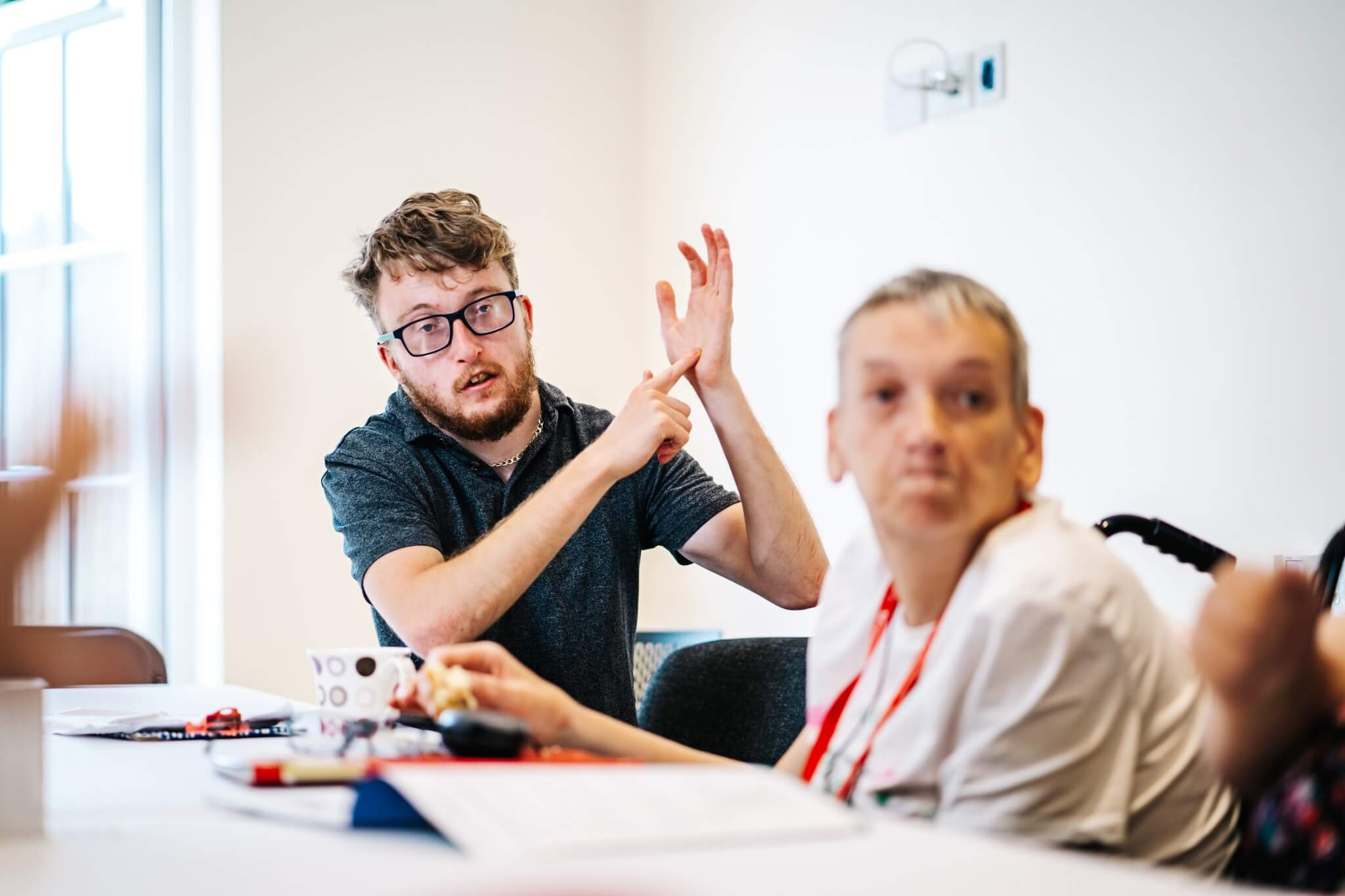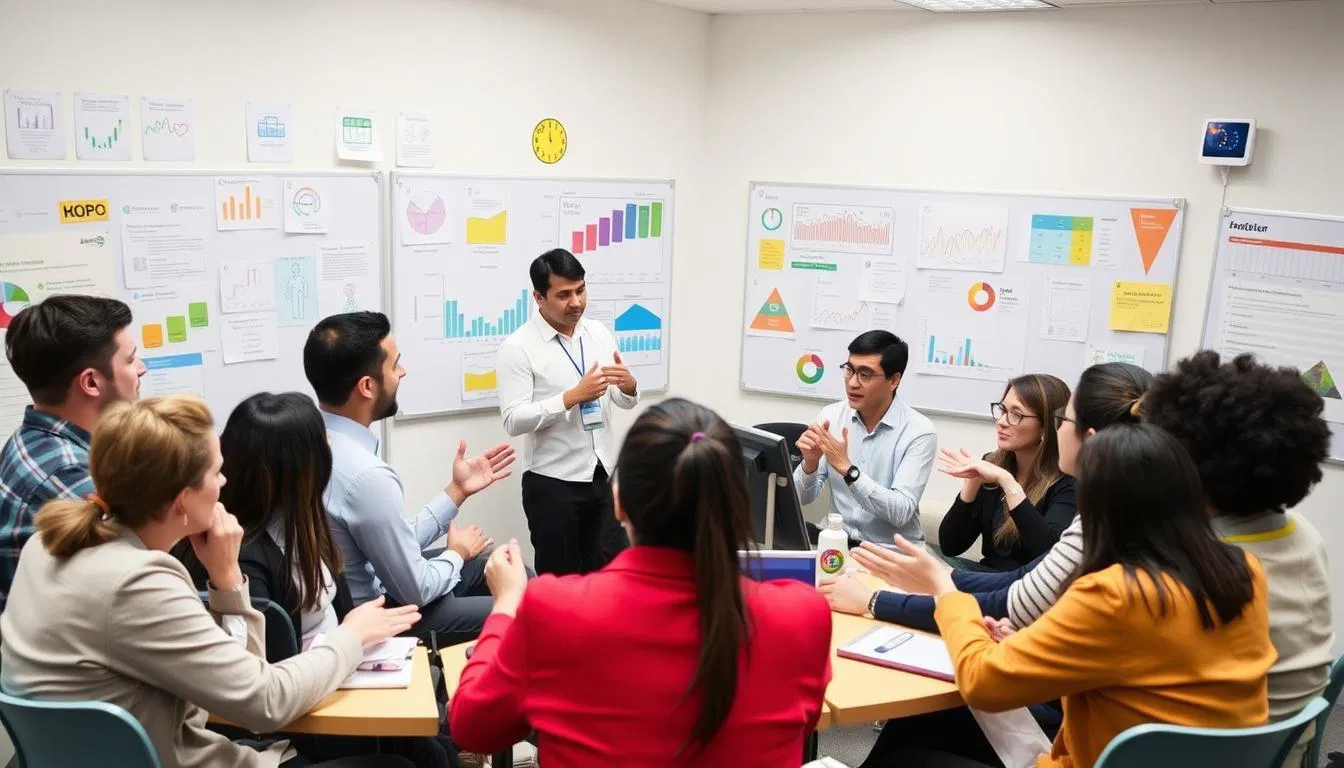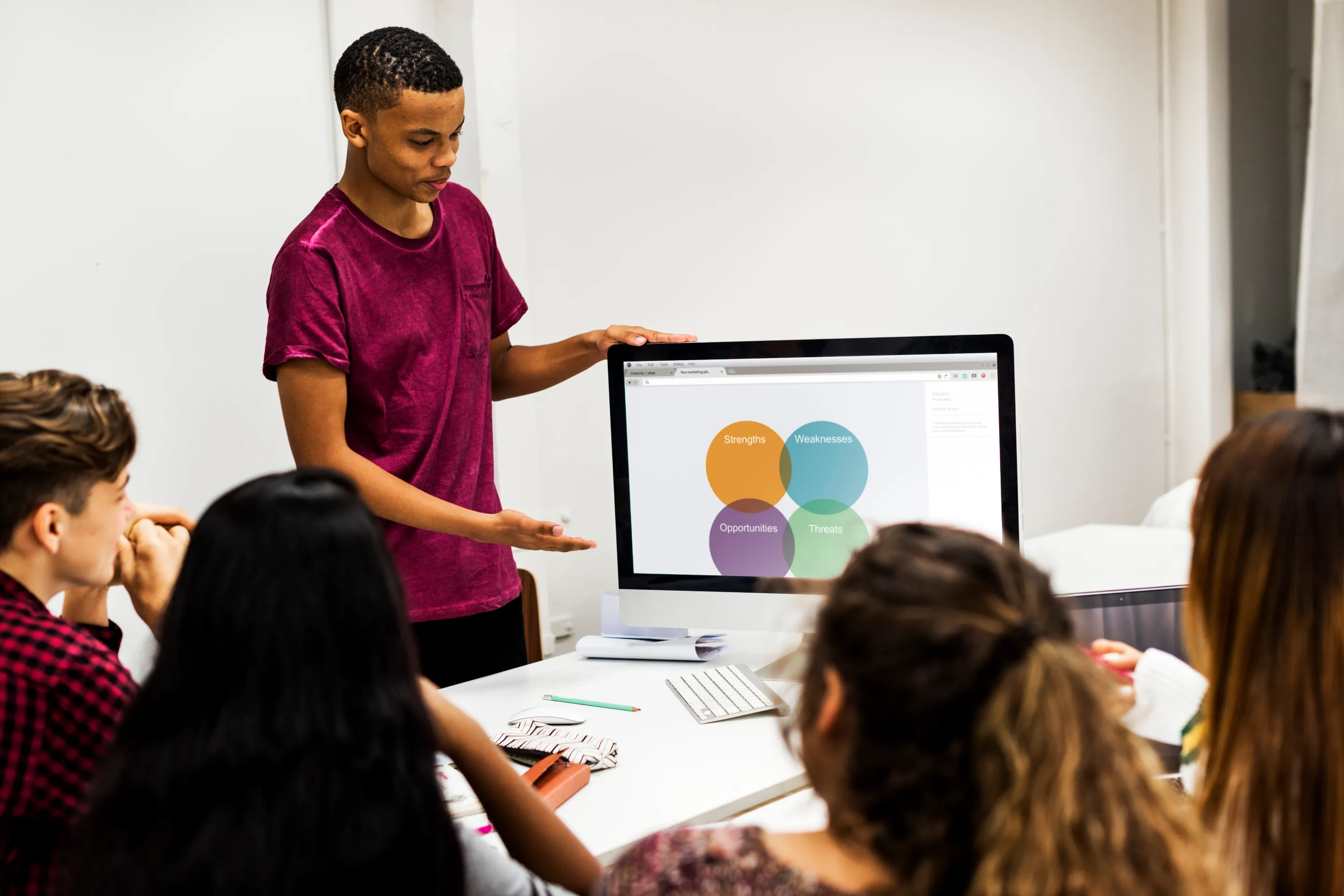THE BEST WAY TO ACTUALLY REMEMBER WHAT YOU STUDY
Memorizing stuff for tests used to be impossible for me until I figured out this simple trick. Now I actually remember things longer than a day.
So like, I used to be really bad at remembering stuff for school. I would read my textbook for hours before a test and then the next day my brain would be totally empty. It was super annoying because I was putting in the work but not getting good marks. My parents kept saying I needed to study harder but I was already spending way too much time on it.
Then last year my older cousin who goes to university in Toronto told me about this thing called active recall. At first I thought it was just another boring study method that teachers talk about but never really works. But I was getting desperate because I had a big science test coming up and I really needed to do better. So I decided to actually try it properly.
The basic idea is pretty simple but it changed everything for me. Instead of just reading your notes over and over like most people do, you actually test yourself on the material. Like you close your book and try to write down everything you remember. It feels way harder than just reading but that is actually the point. Your brain has to work harder to pull the information out and that makes it stick way better.
What is really cool is that this method works for pretty much any subject. I have used it for history, math, science, even French class. And the best part is you do not need any special apps or expensive stuff. You just need your notes and maybe some blank paper. Let me explain exactly how I do it and why it works so much better than normal studying.
WHY REGULAR STUDYING DOES NOT WORK
Before I explain the good method, let me tell you why the normal way most students study is actually not that effective. When you just read your notes or textbook multiple times, your brain thinks it knows the information because it looks familiar. You see the words and you think oh yeah I know this. But that is not the same as actually being able to remember it when you need it on a test.
This happened to me all the time. I would read a chapter like three times and feel pretty confident. Then I would sit down for the test and suddenly I could not remember anything. My teacher would ask a question and I would know I read about it but I just could not get the answer out of my brain. It was so frustrating because I put in the time but it did not help.
The problem is that reading is a passive activity. Your eyes move across the page and the information goes into your brain but it does not really stick there. It is kind of like watching someone else play a video game versus actually playing it yourself. You might understand what is happening but you are not building the skills yourself.
Another thing that does not work well is highlighting. I used to highlight like every other sentence in my textbooks because I thought it would help me remember the important stuff. But then when I went back to review, everything was highlighted and I still did not remember it any better. The highlighting made me feel productive but it was not actually helping my brain learn.
WHAT ACTIVE RECALL ACTUALLY IS
Okay so active recall is when you actively try to pull information out of your brain instead of just putting it in. Instead of reading your notes, you close them and try to write down or say out loud everything you remember about the topic. It feels uncomfortable at first because you realize how much you actually forgot. But that uncomfortable feeling is actually your brain learning.
Here is how I do it for a typical study session. First I read through a section of my notes or textbook once. Just once, not multiple times. I try to understand it but I do not worry too much about memorizing everything. Then I close the book and get out a blank piece of paper. I write the topic at the top and then I try to write down everything I can remember about it.
Usually the first time I do this, I can only remember like maybe half of what I just read. That used to make me feel bad but now I know it is normal. The important part is what happens next. I open my notes again and check what I missed. I look at the stuff I forgot and I read it again, but this time I am paying way more attention to it because I know my brain did not catch it the first time.
Then I close the notes again and try the whole thing over. This time I usually remember more. I keep doing this cycle of testing myself and checking my notes until I can write down pretty much everything without looking. It takes longer than just reading would take, but the difference is that I actually remember it afterwards. Like I can still remember stuff I learned this way from months ago.
WHY THIS METHOD WORKS SO WELL
The reason active recall works better than regular studying is because of how your brain actually stores memories. When you just read something, it goes into your short term memory but it does not necessarily make it to your long term memory. But when you force your brain to retrieve information, you are strengthening the pathways that lead to that memory. It is like making a path through the woods. The more you walk on it, the clearer and easier it becomes to follow.
Every time you successfully remember something, your brain gets better at remembering it next time. And even when you forget something and have to look it up again, that process of forgetting and then relearning actually makes the memory stronger. I know that sounds weird but it is true. Struggling to remember something is actually good for your brain.
There is also something called the testing effect. Scientists have done studies where they compare students who study by reading to students who study by testing themselves. The students who test themselves always do better on the actual exam, even if they spent less total time studying. I read about this in my psychology class and it made me feel way better about using this method.
Another benefit is that active recall shows you exactly what you do not know. When you just read your notes, everything seems familiar so you think you know it all. But when you test yourself, you quickly find out what you actually forgot. Then you can focus your study time on those weak spots instead of wasting time reviewing stuff you already know well.
DIFFERENT WAYS TO DO ACTIVE RECALL
You do not have to do active recall exactly the way I do it. There are actually lots of different methods and you can pick whatever works best for you. The main thing is that you are testing yourself instead of just reading. Here are some ways I have tried that all work pretty well.
FLASHCARDS
This is probably the most popular way to do active recall. You write a question on one side of a card and the answer on the other side. Then you go through the cards and try to answer each question before flipping it over. I use flashcards a lot for vocabulary and definitions. You can make physical cards or use apps like Anki or Quizlet. I prefer physical cards because I remember stuff better when I write it by hand but apps are more convenient.
PRACTICE QUESTIONS
If your textbook has practice questions at the end of chapters, actually do them. Do not just read the questions and think about the answers. Actually write out full answers like you would on a test. This is super helpful for math and science where you need to practice solving problems. Even if the questions seem hard, trying them and getting stuck is way better than not trying at all.
BLANK PAPER METHOD
This is my favorite method for subjects like history or biology where you need to remember lots of connected information. You just take a blank piece of paper and write everything you know about a topic without looking at your notes. For example if you are studying the causes of World War One, you would write down all the causes you can remember and explain them. Then check your notes and see what you missed.
TEACHING SOMEONE ELSE
If you can explain something to another person, that means you really understand it. I sometimes explain stuff to my little brother or even just to myself out loud. If you get stuck trying to explain something, that shows you where you need to study more. This works really well for concepts that you need to understand deeply, not just memorize.
COMBINING ACTIVE RECALL WITH SPACED REPETITION
Once I got good at active recall, I learned about another technique called spaced repetition that makes it even more powerful. The basic idea is that you review information at increasing intervals over time. So you might review something today, then again tomorrow, then again in three days, then again in a week, and so on.
Your brain forgets things over time, but every time you review something right before you are about to forget it, you reset the forgetting curve and the memory gets stronger. If you review too soon, it is not challenging enough and your brain does not learn as much. If you wait too long, you forget everything and have to start over. The trick is finding the right timing.
I use a pretty simple system for this. After I learn something new using active recall, I test myself on it the next day. If I remember it well, I wait two days before testing myself again. If I remember it again, I wait four days, then a week, then two weeks. If I forget something, I go back to testing it daily until it sticks better.
There are apps that can automate this timing for you. Anki is the most popular one and it uses an algorithm to figure out when you should review each flashcard. I tried it for a while and it works really well, especially if you are learning a language or memorizing lots of vocabulary. But you can also just do it manually with a calendar and some discipline.
The combination of active recall and spaced repetition is honestly the most effective study method I have ever used. It takes some planning and you have to be consistent with it, but the results are amazing. I remember stuff way longer and I do not have to cram as much before tests because I have been reviewing regularly.
COMMON MISTAKES TO AVOID
When I first started using active recall, I made some mistakes that made it less effective. Now that I have been doing it for a while, I know what to watch out for. Here are the biggest mistakes I see other students making and what I learned from my own mistakes.
Not making it hard enough: Some people test themselves but they make it too easy. Like they will look at a question and just think about the answer in their head without actually saying it out loud or writing it down. But thinking about the answer is not the same as producing it. You need to actually force your brain to generate the full answer, not just recognize it.
Giving up too quickly: Active recall feels hard at first and you might get discouraged when you realize how much you do not remember. But that is the point. If it was easy, your brain would not be learning anything new. You have to push through the uncomfortable feeling of not knowing something and trust that the process works.
Only testing yourself once: One round of active recall is better than just reading, but it is not enough. You need to test yourself multiple times, with gaps in between, to really make the memories stick. I try to do at least three rounds for important material, spread out over several days.
Not reviewing your mistakes: When you get something wrong during active recall, do not just look at the answer and move on. Take time to understand why you got it wrong and what the right answer is. Maybe even make a note about it so you can focus on it extra during your next review session.
Waiting until the last minute: Active recall works best when you have time to do multiple sessions spread out over days or weeks. If you wait until the night before a test, you will not get the full benefits. You need to start early and be consistent with your review sessions.
HOW TO GET STARTED TODAY
If you want to try active recall, you do not need to completely change your study routine all at once. Just start small and see how it goes. Here is what I recommend for getting started based on what worked for me.
Pick one subject or one chapter that you need to study soon. Read through the material once to get familiar with it. Then close your notes and try to write down the main points on a blank piece of paper. Do not worry if you can only remember a little bit at first. Check what you missed, read those parts again, and try the whole thing over.
Do this for maybe twenty minutes and see how it feels. It will probably feel harder than your usual studying and that is normal. But after you do it a few times, you will start to notice that you remember things better. Give it at least a week before you decide if it works for you or not.
Once you get comfortable with the basic process, you can start adding in spaced repetition. Make a simple schedule for when you will review different topics. You can use a calendar app on your phone or just write it down in a planner. The key is being consistent and actually sticking to your review schedule.
You might also want to try different methods of active recall to see what works best for different subjects. I use flashcards for French vocabulary, blank paper method for history, and practice problems for math. Experiment and find what feels most effective for you.
Learning about active recall seriously changed my life as a student. I went from barely passing some of my classes to actually doing pretty well, and I spend less time studying than I used to. The difference is that my study time is way more effective now because I am using a method that actually works with how my brain learns.
The best part is that once you get good at this technique, you can use it for anything you want to learn, not just school stuff. I have used it to learn guitar chords, remember people's names better, and even study for my driving test. It is a skill that will help you for your whole life, not just for getting through high school.
If you are struggling with remembering what you study, I really encourage you to give active recall a serious try. Yes, it feels harder than just reading your notes. Yes, it takes some planning and discipline. But it actually works, and that is what matters. Stop wasting time on study methods that do not help you remember anything and start using a technique that is backed by science and proven to work.




